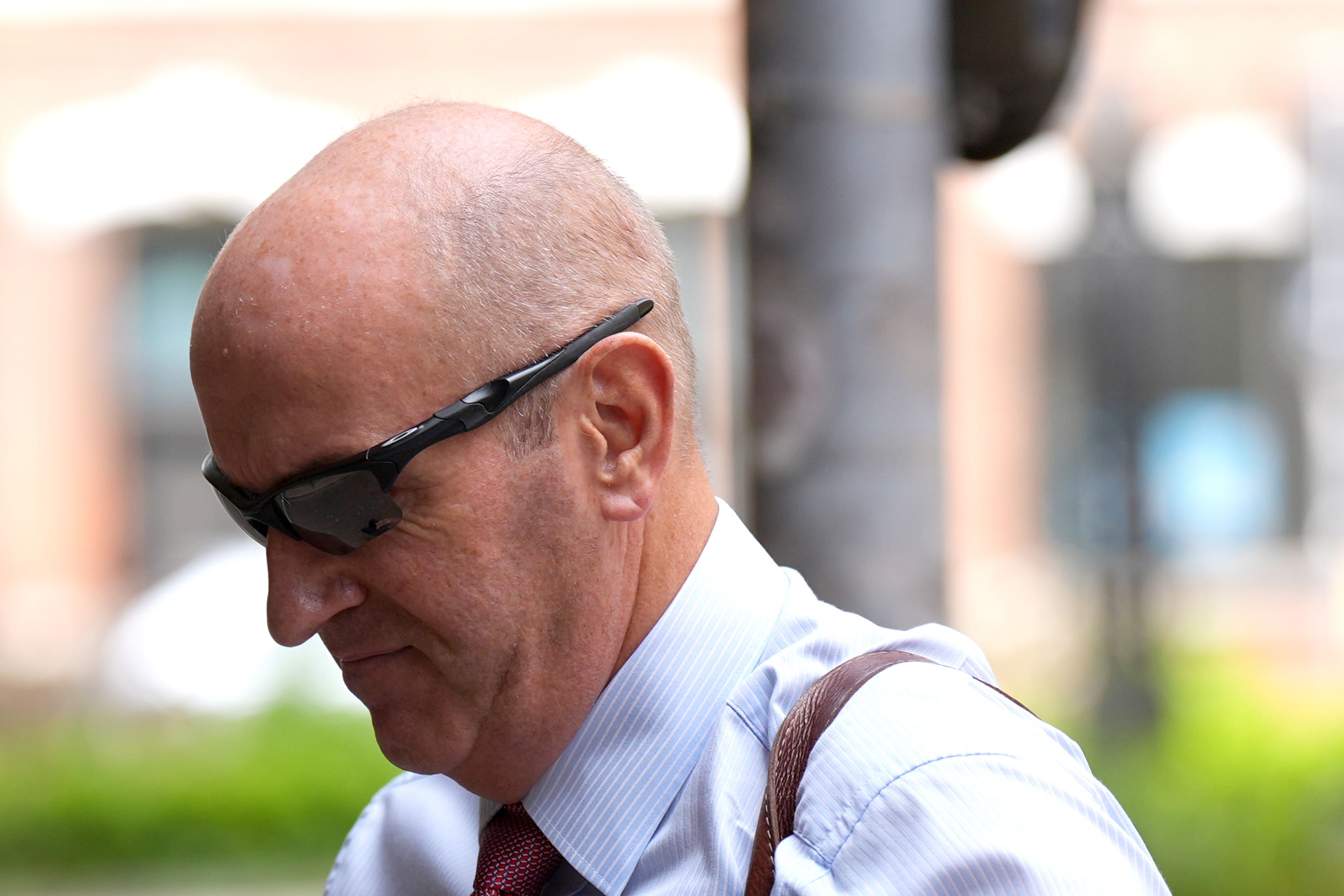Fines for lockdown breaches less than for littering, ex-officer tells inquiry
Former PSNI assistant chief constable Alan Todd gave evidence to the Covid-19 Inquiry in Belfast.

Your support helps us to tell the story
From reproductive rights to climate change to Big Tech, The Independent is on the ground when the story is developing. Whether it's investigating the financials of Elon Musk's pro-Trump PAC or producing our latest documentary, 'The A Word', which shines a light on the American women fighting for reproductive rights, we know how important it is to parse out the facts from the messaging.
At such a critical moment in US history, we need reporters on the ground. Your donation allows us to keep sending journalists to speak to both sides of the story.
The Independent is trusted by Americans across the entire political spectrum. And unlike many other quality news outlets, we choose not to lock Americans out of our reporting and analysis with paywalls. We believe quality journalism should be available to everyone, paid for by those who can afford it.
Your support makes all the difference.Penalties for breaching lockdown regulations in Northern Ireland during the pandemic were less severe than for littering in Belfast city centre, a former senior police officer has told the UK Covid-19 Inquiry.
Former PSNI assistant chief constable Alan Todd told the hearing how his officers had been left with no deterrent powers after they raided a house party which was in breach of guidance, and found the householder content to pay the fine to allow the event to proceed.
Mr Todd, who was since retired, is the only PSNI officer who was called to give evidence during the inquiry’s hearings in Belfast.
Whilst the concept was announced, the regulations that would shape it weren't available
Counsel to the inquiry Nick Scott asked Mr Todd about “deficiencies” in the regulations relating to the first lockdown in Northern Ireland which was introduced at the end of March 2020.
Mr Todd said: “From a policing and operational perspective, the date of lockdown was announced at really short notice.
“Whilst the concept was announced, the regulations that would shape it weren’t available.”
He said the policing response to Covid regulations was guided by four Es – engage, explain, encourage, enforce.
He said: “But the simple truth is that for the first four weeks of the first lockdown there was no fourth E.”
The former officer said when regulations were provided, they came “without guidance” for police.
He said: “There was no powers of arrest, there seemed to be little consideration given to giving police officers powers to ask members of the public about why they were out of their home or where they were going to work.
“You can ask, but there is no authority if people were difficult or wanted to game the system.
“There was no guidance which would have shown due regard to European Convention considerations, there was no guidance to point the police in terms of Section 75 Northern Ireland Act considerations.
“None of that was available at the time lockdown went live, and that places police in a difficult position.”
Mr Todd said he believed it was the responsibility of collective government to provide the guidance to police.
I was pushing the executive in debates around the appropriateness of £60 fines, which were £30 if you paid them soon
Mr Scott asked the former officer if the PSNI understood what it was being asked to do in the early lockdown.
Mr Todd said: “We understood the framework, we understood the concept of a lockdown, we understood how policing could assist.
“Did we understand the detail? It wasn’t provided.
“Did we understand the guidance we should rely upon it operating it? It wasn’t available.”
The former senior officer said the regulations changed multiple times and police became stretched as parts of the economy began to reopen later in 2020.
He said: “I was pushing the executive in debates around the appropriateness of £60 fines, which were £30 if you paid them soon, which I pointed out to executive policy-making colleagues is less than you would get for dropping littler in Belfast city centre, and whether that demonstrated the seriousness with which we took a breach of the coronavirus regulations.”
He added: “Police officers attended a house party in a rural community at around this time.
“It was a 21st birthday party. There were 30-plus people. A blatant breach of the regulations and the householder decided they were quite happy to pay the £1,000 fine as the householder and £30 for each of the attendees as the price of having the party.
“And at the point of issuing those fines, the police had no further powers, no further deterrent in relation to it.
“I don’t think that sort of event, which obviously becomes public knowledge, helps a police service or a government manage a health pandemic.”
Inquiry chairwoman Baroness Heather Hallett said she had read lockdown regulations in England and had been unable to understand them.
She asked: “Were your regulations here in Northern Ireland as bad as I think they were in England?”
Mr Todd told Lady Hallett he would not argue with that assessment.